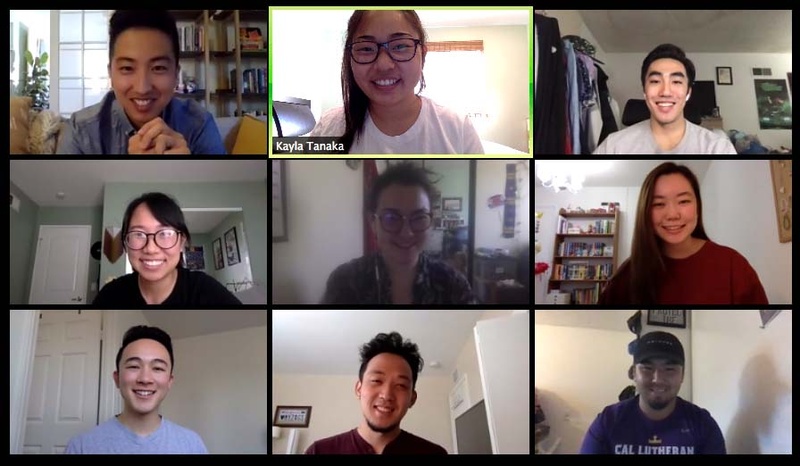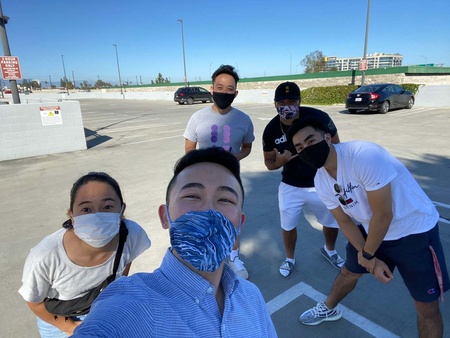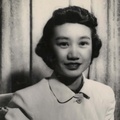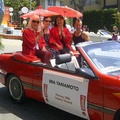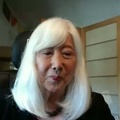Everyone can agree that 2020 is a year of unprecedented circumstances. With COVID-19 forcing the world to stay at home, the world as we know it changed forever. With the struggle to maintain business, many companies, organizations, and businesses had to shut down their internship programs for the summer. However, the Nikkei Community Internship (NCI) program pushed through all of these obstacles and did whatever it took to ensure that their program would still take place. I will be forever grateful for all of the work that they have done to allow this program to continue this summer. All of the experiences that I have gained through this internship instilled a professional foundation within myself and will always guide me in my future career.
This summer I was able to participate in four distinct projects. These four projects were: creating an article about the Nikkei sports experience, creating an article about COVID-19 and the xenophobia that affected the Nikkei community, creating a biography for Chiyoko Sakamoto, and interviewing Mia Yamamoto. In addition to these projects I was able to meet with a new attorney every week to learn about their careers and participate in “Intern Days” hosted by Kizuna in which I was able to meet Little Tokyo Community members. In this reflection essay I will dive deeper into each of these experiences and highlight the ways in which I was able to grow as an individual.
The first project that I worked on was the Nikkei sports experience article. For this article, I decided to compare the Japanese American basketball league experience in Northern California to Southern California. I first interviewed two of my friends that played in the league in Northern California—Rossten Nakamura and Katelyn Kung. In addition, I also interviewed my friend Reese Komesu who played in the Southern California league. In the article I compared their experiences and realized that the Japanese American leagues are so similar. I realized that leagues instilled many of the same values about the importance of the Japanese American community, identity, and history. However, in our experiences we were never able to get to know each other’s communities during our time in the basketball leagues.
This project made me realize that there is so much more that the Nikkei community can do to strengthen the solidarity in the community. As a Japanese American in California, if I am having the same experiences as the Japanese Americans in Northern California, then we should take advantage of that connection and not allow the far distance to be a barrier between the communities. So, in the future, maybe I can create that bridge between the Southern California and Northern California basketball leagues.
For my second project, I wrote an article about COVID-19 and the xenophobia that affects the Nikkei community. I researched xenophobia, specific hate crimes that affected the Nikkei community, and statistics behind these hate crimes. Through my research I learned that the amount of hate crimes towards Asian Americans had actually decreased during the 21st century but then had a major increase in March of 2020 when the COVID-19 pandemic started to escalate. The anti-Asian hate crimes that I researched were malicious acts which included acid poured on victims, drinks thrown at them, and even bullying in elementary schools. In fact one of these cases involved a Japanese American store owner who received a bomb threat because of his Japanese ethnicity.
I realized that these anti-Asian hate crimes were so similar to the anti-Asian hate crimes in 1942 right before the Japanese were placed into concentration camps. Seeing how eerily similar these parallels are it deeply upset me knowing that America really has not progressed at all in terms of its views on Asian Americans. I believe this project heightens the importance of this internship. If Asian American communities are still being discriminated against and still oppressed by these hate crimes, it exemplifies the need to have community leaders represent those communities and make change. This lesson is something that I will take with me in my career. In everything that I do, I have to realize that as an Asian American, I need to represent my community and help change those views of the Nikkei community as well as the identity of Asian Americans.
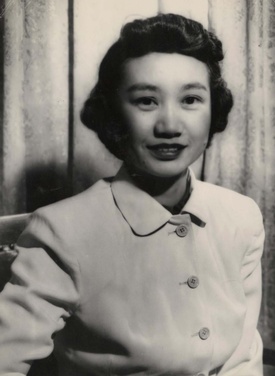
The third project that I worked on was creating a profile for Chiyoko Sakamoto. Through research I learned that Chiyoko Sakamoto was the first Japanese American female attorney and co-founder of Japanese American Bar Association (JABA) and the California Women's Bar. Sakamoto was such an innovator of her time and created many opportunities for the Nikkei community in the present day.
While doing research, it was difficult to find primary and secondary sources about her. After reaching out to various friends of hers, co-founders of JABA, attorneys, and judges, I was unable to find anyone that had any stories or insight to share. This project taught me that research can be difficult and sometimes there are not as many sources as one may think. In the future for any research project that I do, I learned that I cannot expect resources to be easily available and I must dive deeper into finding sources that may not have been thought of before.
Finally, my last project was to interview Mia Yamamoto, a female Asian American transgender attorney, via Zoom, and write an article about her. Yamamtoto’s story was not only inspiring for my career, but she taught me many important lessons about how I can be involved with the Nikkei community in the future. Yamamoto emphasized the fact that in everything one does, it must be done to advance for the common good of all people. One has to have purpose in their work and challenge the social norms even if it means losing.
Yamamoto’s work in the Nikkei community also highlighted the importance of creating solidarity with communities outside of the Nikkei community. Whether it’s the LGBTQ+, Black, or Chicano communities, the Nikkei community has to be allies with all these other minority communities in order to bring social justice for society. It is not enough to just advocate for ourselves as Nikkei because the most noble thing that we can do is help others. In my future career, this perspective is something that changed the way I think about communities. In the work that I do in the future, I have to be an ally for other communities and use my experiences as a Japanese American to try relate to them as best as I can.
Every week during the internship I had the opportunity to meet one attorney. What I loved about those meetings was that each conversation was different. Each attorney I was able to meet gave me a new perspective on their career and they gave me insight that will help me find my career path as a lawyer.
As I started the internship I did not know exactly what kind of law that I wanted to go into but, meeting these attorneys was eye opening. I was able to see how these attorneys were able to make a difference for their clients through their law practice.
However, the most important thing that I took away from these conversations was that all of them, no matter what their practice, made time to give back to the community. Although they are extremely busy, each of them explained to me that there is always time to give back to the community. In addition, they taught me that there are a wide variety of ways to be involved. I can work in a non-profit, be in a bar association, or volunteer, and I did not realize the large amount of opportunities that were available to lawyers. Many organizations need lawyers for their professional skills and I can have such a huge impact as an attorney outside of my work.
Through the intern days I was able to meet a variety of community leaders such as Kathryn Bannai, one of the lead attorneys in the Gordon Hirabayashi case, and Randy Sakamoto who is part of the Sawtelle Japantown Association just to name a few. These individuals not only inspired me with their passion for the community, but made me realize all of the work that is done behind the scenes to support the community. These community leaders work for the community every single day and don’t take days off. In fact, a majority of these leaders have other jobs and work in the community voluntarily and dedicate all their time.
This dedication is something I realize that I have to bring to the community into the future and it gave me a newfound appreciation for the work that has been done to create the opportunities that I have today. The community leaders in the past and present persevered through oppression and fought hard to create equal opportunities in the Japanese American community. It is crazy to think that the opportunities that I have today were not available to those individuals. Not knowing this history, it is really easy to take those opportunities for granted. So it makes it even more important that I continue to work in the community in the future in order to continue the growth of these opportunities and ensure that their work does not diminish.
Being able to work with my NCI cohorts made me very excited about the future of the Nikkei community. The opportunity to meet other young individuals that were just as passionate about the community as I am continually inspired me throughout my internship. Even though the internship was online I felt that I was still able to make meaningful friendships with them. We were still able to get together in person a few times and gave me so many great memories that will last a lifetime. Seeing the work that they were able to do with their organizations was not only impressive but, it also was a nod to the community that creates those opportunities for them to do such impactful work in such unprecedented times. All of the work that the interns were able to accomplish in such a limited capacity gave me no excuse for the work I will get involved with in the future.
Overall, this experience was one that I will never forget. The fact that the Japanese American community had made the necessary accommodations to allow this internship during a pandemic exemplifies how much the community truly cares about the future generations. The community is so much bigger than myself and I will forever be grateful.
I am so thankful to have gained a new perspective on the community, stronger professional skills, meaningful relationships, and a new respect for the past generations. As I got a deeper understanding of the community, I remember being emotional (almost cried at times) hearing about their experiences. If there is one final lesson that I took away from this program, it is that as a Japanese American I must never forget the scars that have been left on our past predecessors. Understanding our culture and the struggle and the work that our past predecessors endured will allow us as Japanese Americans to relate to other communities that have faced oppression and relate to their lives. Remembering these scars is the only way we can grow as a community, create opportunities for future generations, and establish solidarity with other communities, but ultimately grow as people. In my life I will carry these lessons with me because I am the future generation of the Japanese American community.
* * * * *
Matthew's final presentation about his internship experiences on Aug. 4, 2020
*This is one of the projects completed by The Nikkei Community Internship (NCI) Program intern each summer, which the Japanese American Bar Association and the Japanese American National Museum have co-hosted.
© 2020 Matthew Saito


